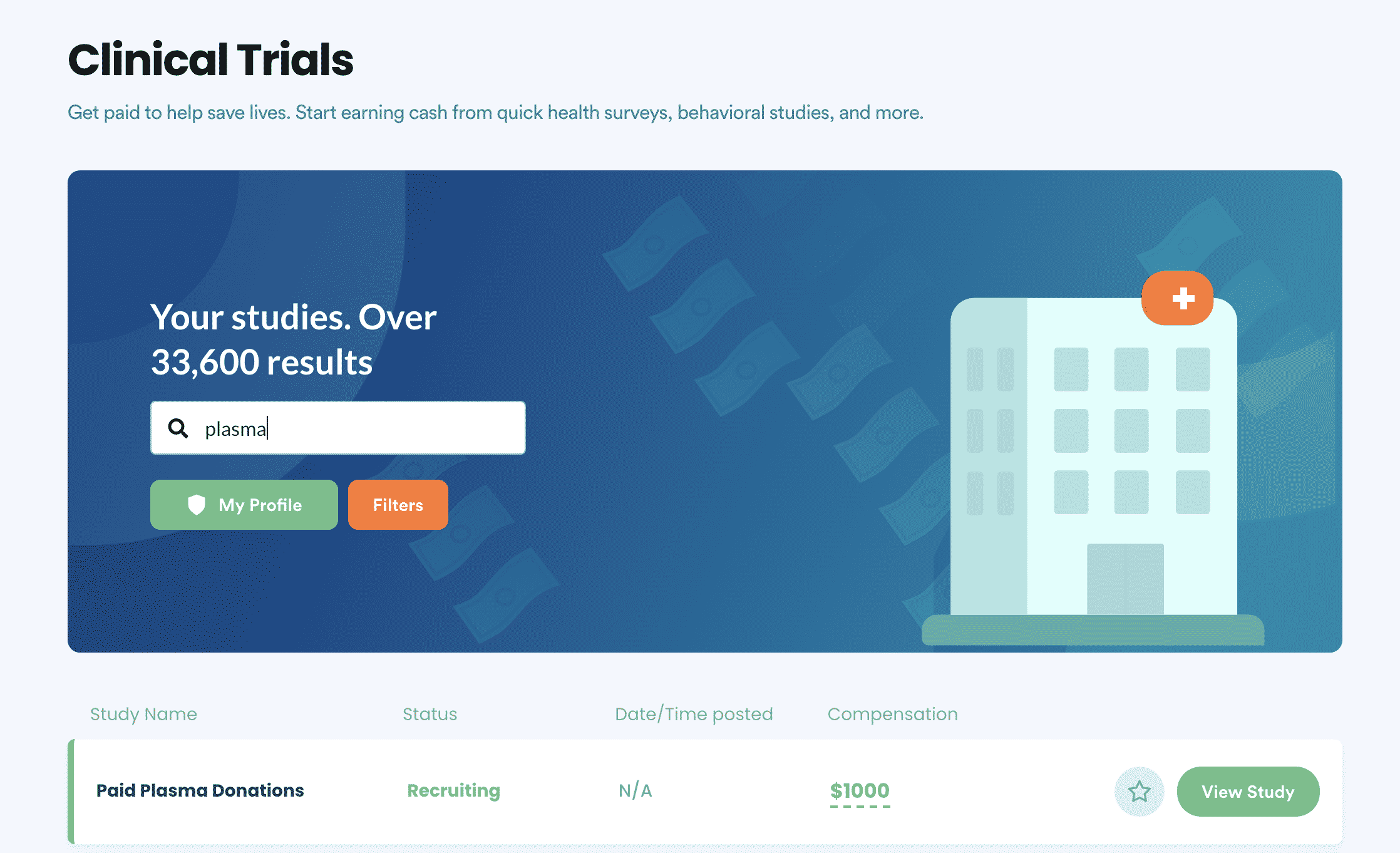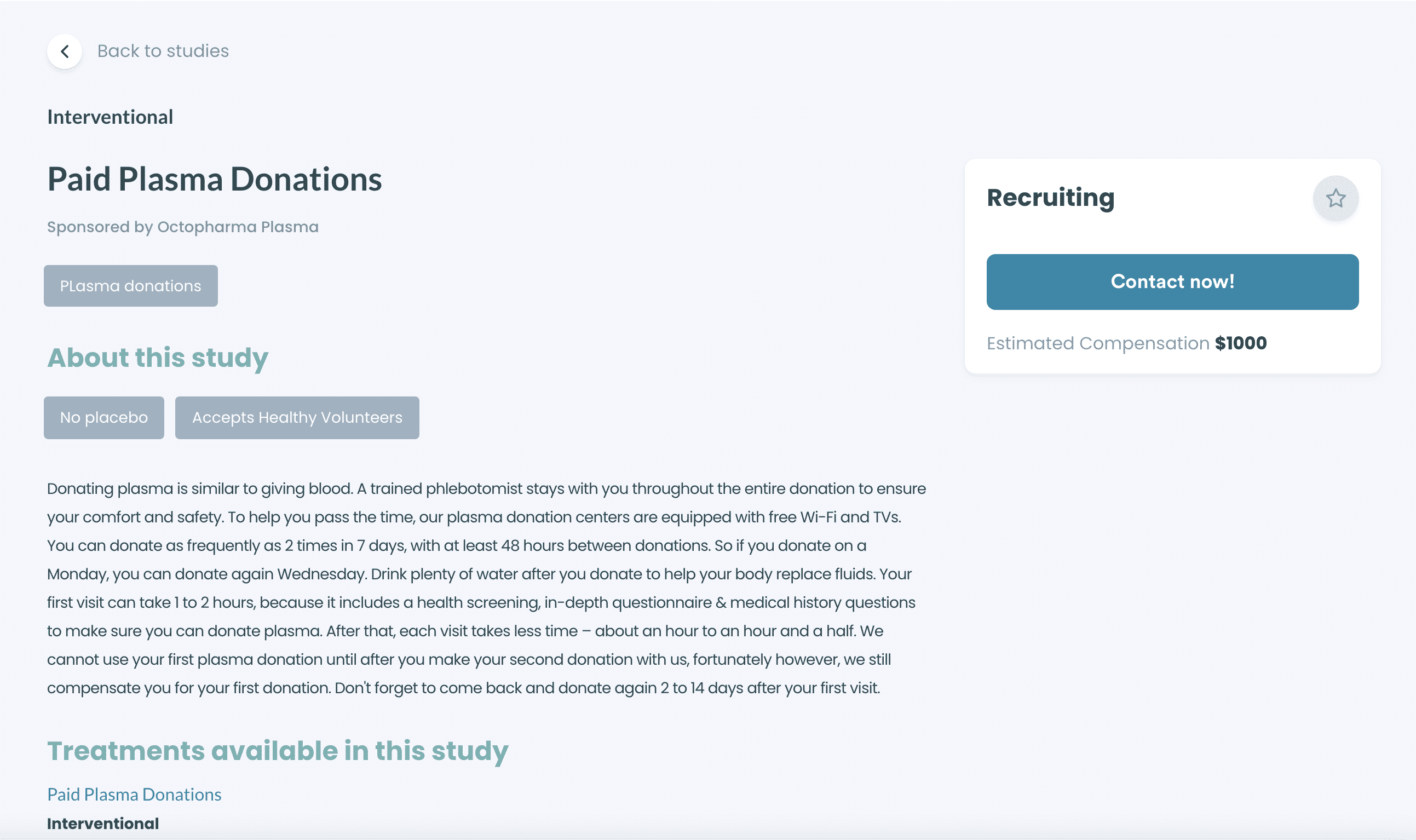Who Cannot Donate Plasma?
Plasma donors usually have a greater impact on other people's lives than blood donors. They help individuals who've experienced severe trauma, burns, cancer, or liver disorders. For their good deed, they can receive up to $1,000 in their first month.
However, . Some, like pregnant women, can't donate while they're still pregnant. They might be eligible six months after they deliver. Others, like people with cancer and heart conditions, cannot donate plasma at any time.
This guide will investigate and the process you can follow on DoNotPay to become a donor.
Why Donate Plasma?
Plasma is a yellowish portion of the blood that carries water, salt, and enzymes. It helps people maintain healthy blood pressure, PH balance, and blood volume.
People who've experienced severe burns, trauma, or shock typically have a lower amount of blood volume and minerals.
Plasma transfusion can help these people to:
- Regain a healthy amount of blood volume.
- Restore required minerals in the blood.
- Increase water levels and ensure a neutral PH.
- Increase nutrient levels in the blood.
Plasma donation can also help people with liver disease or clotting factor deficiency regain substances that allow the blood to clot normally. It also helps children with cancer regain their clotting factors, which prevents them from losing a lot of blood in case of a cut.
If you're unsure whether you should donate plasma or not, here are some reasons.
| Earn money. | You can earn a hefty amount of money by donating plasma. If you're opting to donate plasma for cash, you can earn around $1,000 each month. |
| Make an impact. | Plasma donation is, undoubtedly, a great way to make an impact. Thus, helping you to improve the quality of someone's life. |
| Boost your mood. | Recent studies suggest that donating something directly boosts your mood. By donating plasma for money, you can reduce your stress level. |
| Eat better. | Being a plasma donor helps you to improve your diet. You will be educated to cut down on fatty foods and limit other unhealthy food. |
| Be healthier. | Donating plasma will help you lower the cholesterol levels in your body. |
Who Cannot Donate Plasma?
While people who donate plasma are considered heroes since they keep people alive, not everyone can donate plasma. Here are several reasons that may prevent you from donating blood:
- Illness. Doctors don't allow people who have a fever, productive cough, or are generally unwell to donate.
- Low-iron. Low hemoglobin or iron levels in the blood can disqualify you for plasma donation. However, some institutions may allow you to donate.
- Medication. You cannot donate plasma if you recently underwent medical treatment and procedures, including surgery and blood transfusion.
- Medical condition. The American Red Cross considers several conditions before allowing someone to donate blood. These include HIV, tuberculosis, hepatitis, heart disease, and other chronic illnesses.
- Unprescribed drug. You cannot donate plasma if you were recently injected with an unprescribed drug, including bodybuilding and tanning agents.
Who Needs to Wait to Donate Plasma?
Some people who cannot donate blood at the moment may be allowed to do so in the future. These include:
- Pregnant women and women who gave birth in the past six months.
- People who have recently traveled. Doctors will also inquire about your travel habits to determine if you're likely to have a communicable illness like Ebola, Zika Virus, etc.
- Those who have gotten a tattoo recently. If you recently got a tattoo or piercing, doctors may not allow you to donate plasma. This is to avoid hepatitis that can be caused by sharing of needles.
- People undergoing checkups or assessments to find out if they have a chronic illness or heart disease.
Next Steps for Donating Plasma if You Can’t Do It Yourself
Finding out if you're eligible for donating plasma takes time. While some institutions may allow you to donate under some conditions, others will refuse. This makes it difficult to know whether and where you can donate plasma.
If you're struggling to find a place to donate plasma yourself, you can always ask for assistance from DoNotPay. Here's how you can use DoNotPay to become a plasma donor:
- Search "plasma donations" on DoNotPay and find the nearest donation clinic through our clinical trials product.

- Select the "Contact Now" button to learn more about eligibility criteria, contact the clinic with questions, or sign up for first-time donor bonuses.

- Verify your information and submit your inquiry! DoNotPay will contact the clinic on your behalf and make sure your questions get answered.

What Else Can DoNotPay Do?
In addition to helping you find a place to , DoNotPay can help you answer questions about plasma donation, such as:
- How often can you donate plasma?
- What are the requirements for plasma donors?
- Can you donate plasma after getting the COVID vaccine?
- How old do you have to be to donate plasma?
- How long does it take to donate plasma?
- Can people with diabetes donate plasma?
DoNotPay can also help you solve issues and find answers to your health problems.
Read the resources below to see how else DoNotPay can help:
- Conducting Clinical Trials
- Requesting Sick Leaves
- Advance Healthcare Directives
- Insurance Claims
If you want to donate plasma, you're on the right track. You might save a life and help someone remember your good deed for the rest of their lives. However, not everyone is eligible for plasma donation. If you're not sure whether you're eligible, you can use DoNotPay to send inquiries to nearby clinics. Register and start your search today.
 By
By